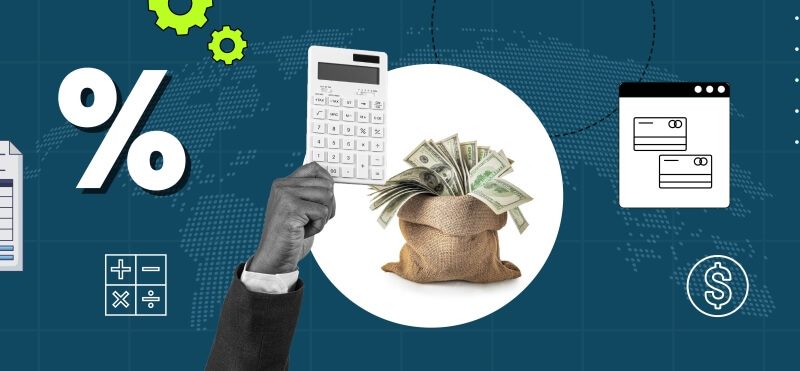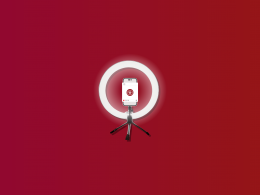As a small business owner, making sense of the accounting basics and bookkeeping terminology might be giving you a little bit of a headache. At the same time, being able to successfully maneuver the world of accounting is crucial to the success of your business.
That’s why in this article, we will cover an essential topic for every business owner: what the difference between accrual and cash accounting is, and how to choose the right method for your business.
Contents:
1. What’s the difference between accrual and cash method of accounting?
2. Pros and cons of the accrual accounting method
3. Pros and cons of the cash accounting method
4. How to choose the right accounting method
What’s the difference between accrual and cash method of accounting?
To decide which method is best suited for your business, we must first understand the difference between accrual and cash accounting methods. So let’s review them both.
What is accrual-basis accounting?
Accrual basis accounting recognizes business revenue and matching expenses when they are generated—not when money actually changes hands. This means companies record revenue when it is earned, not when the company collects the money.
Accrual method and accounting software
Accrual basis accounting allows a business to recognize revenue and expenses before the cash hits or leaves the bank. Entering a bill in QuickBooks will create an expense when entered rather than when paid. In the same respect, invoicing a client will recognize revenue before the client pays you.
What is cash-basis accounting?
Cash basis accounting tends to be used by small businesses and organizations that pay taxes via their owner(s) personal tax returns. Under the cash basis method, revenue and expenses are recorded based solely on cash flow. Revenue is reflected when the company receives cash from a customer, and expenses are recorded when cash is paid out.
Cash flow and accounting software
This is the opposite of accrual accounting. True cash-based accounting means that entering a bill in QuickBooks will not recognize an expense, but when that bill is paid, the expense will show on the books. Invoicing a client will not recognize revenue until that invoice is paid.
It’s all about timing.
Pros and cons of the accrual accounting method
A big pro of accrual accounting is that it is more realistic. Most small businesses are invoicing customers and waiting for the payment to come in. At the same time, they are receiving bills from their vendors and suppliers. Businesses may file on a cash basis but they are operating on an accrual basis.
Another pro of accrual accounting is that it will provide you with a more accurate cash flow forecast. Being able to see ahead what is due to you and what you owe out, can make planning easier. You will start to learn how slowly or quickly customers pay and when to expect the cash to come in.
What to keep in mind when choosing accrual-based accounting
Typically the cons of the accrual method are the tax implications. When you are recognizing revenue you do not yet have in the bank you are preparing to pay tax on that income. That includes paying sales tax on invoices that your customers have not yet paid. If your client never pays you then you need to get credit for those unpaid invoices in the next filing period.
Additionally, you will have a more robust chart of accounts because you will need to track things like accounts receivable, accounts payable, and liabilities.
Pros and cons of the cash accounting method
A pro of a truly cash-based accounting method is that it’s very simple. You are simply recording transactions as they happen. That typically means that customers are paying you immediately for a service or product and that is when you record the revenue. There is no need to create an invoice, only a receipt for the customer would be needed.
The same is true for expenses. You are purchasing a product or service and at the time you’re recognizing that expense, not before. This makes income tax and sales tax filing fairly simple as you’re not prepaying them, you’re only paying on your actual income and expenses.
What to keep in mind when choosing cash-based accounting
The biggest con of cash-based accounting for me is that it is not very realistic for the majority of businesses. While you will know exactly how much cash you have on hand, you cannot plan for future incoming cash or expenses. A small business typically needs to look ahead to plan for things like large purchases, marketing, or even hiring.
How to choose the right accounting method
Sometimes this is not a choice you can make. If you are a business that carries inventory you almost always have to file on an accrual basis. Also, if you are a corporation with gross receipts of 25 million or more for 3+ consecutive years the IRS will not allow you to file on a cash basis.
But if the choice is yours, you should work with an accounting professional to make the decision. Here are some factors you will need to consider:
- the size of your business;
- if you’re planning for growth;
- the amount of revenue coming in;
- if the business has debt;
- if the business has assets;
- how you run your business.
The IRS recommends that how you run your business is how you file your taxes. If you are operating throughout the year on a cash basis then you’d file the same way. Though, many businesses operate on an accrual basis and file on a cash basis.
One thing to keep in mind is that once you decide how to file, you will need to stick to the same filing method each year.
Cash and accrual method: closing thoughts
The accounting method is the building block on which your business bookkeeping is kept. And having a solid understanding of the various pros and cons of each method will make the choice that much easier for you.
Choosing the right accounting method for your business is a decision that will help you streamline your accounting and bookkeeping process, let you have a better understanding of the health of your business, and make filing taxes easier both for your business and your accounting professional.






